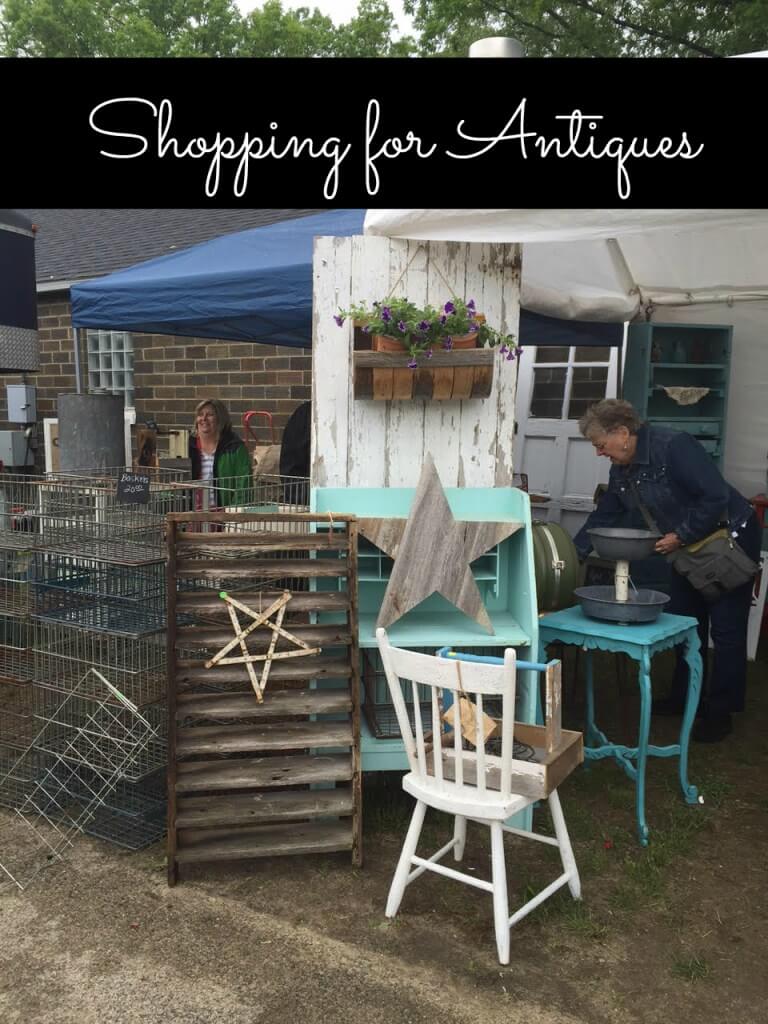
I am an advocate of healthy living and personal wellness.
It’s a well-documented fact that having a hobby is one of the most important things you can do to sustain your mental health and well-being. This is especially important as we age and manage busy lives, careers and family responsibilities. Hobbies keep you balanced, and allow you to pursue interests outside of your career, family and friendships.
No matter how busy you are, it’s important not to sacrifice your personal interests. One of the best investments you can make with your free time, no matter how limited, is to pursue your personal interests and cultivate your passions. This is something that I struggle to do with consistency as I try to manage the demands of work, family and friendships. Still, I also work hard to hold myself accountable too.
Research has shown that people who have hobbies are generally healthier, and have a lower risk of depression and dementia.
In a 2007, New York Times article, Elieen Zimmerman wrote:
Hobbies can enhance your creativity, help you think more clearly and sharpen your focus, said Carol Kauffman, an assistant clinical professor at Harvard Medical School. “When you’re really engaged in a hobby you love, you lose your sense of time and enter what’s called a flow state, and that restores your mind and energy,” she said. In a flow state, you are completely submerged in an experience, requiring a high level of concentration. Research shows strong correlations between flow states and peak performance, said Ms. Kauffman.
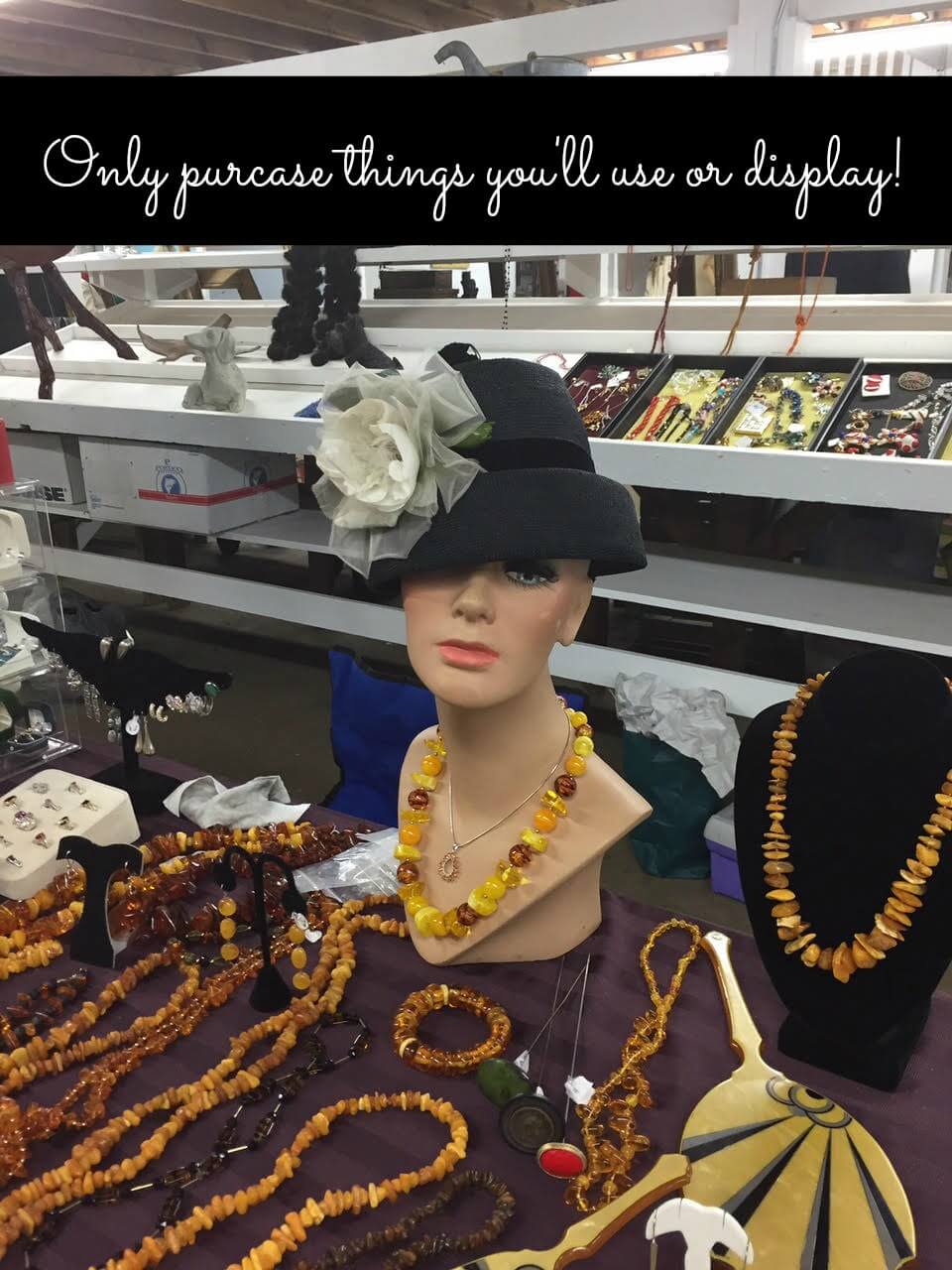
Antique shopping is one of my favorite things to do, and in my area on the last Sunday of each month there’s a large antiques market. I love to go, and have been working way too much this summer. My work schedule has caused me to miss the show twice. Because of that, I’m cancelling all plans and going to the show this Sunday.
No matter what.
From stores, to state fair grounds to the occasional roadside stall, antique shopping is a fantastic adventure! I love the thrill of the hunt, bargaining and the victory that happens when I find something old that enhances my home.
Antiquing gives you the opportunity to encounter many different objects from different eras. Many people collect antiques, while others use them to decorate their homes, provide decorative accents, or round out a collection.
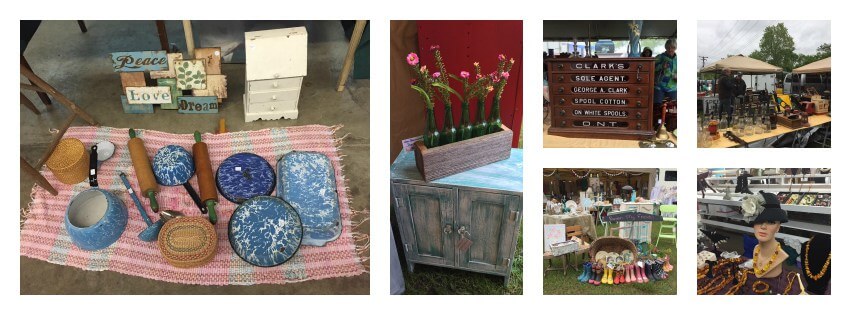
Tip: Whether you’re buying or browsing, antique shopping is a great way learn more about an item, its history, or potential value. Ask the vendor to educate you on the items they’re selling!
Some dealers specialize in regional items, while others have a hodge-podge of items at any given time. Regardless of their specialty, most dealers are great resources for vintage items. Purchasing antiques and vintage items is a very different shopping experience than purchasing something mass produced at a modern day store. Most dealers are familiar with the history or manufacturer of the item they are selling. If asked, they can provide great insight on the history of an item. Be sure to ask questions and familiarize yourself with the item you intend to purchase.
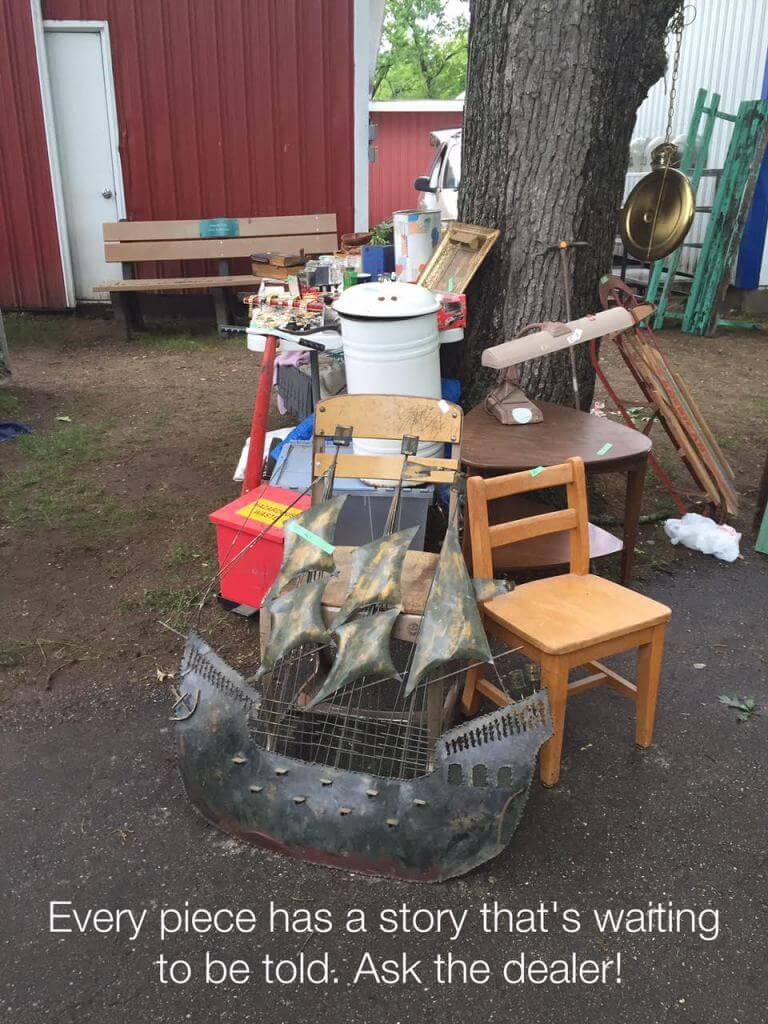
Tip: Always bring cash
It’s almost an unwritten rules that you should always bring cash to an antique show or store. I do, and you should too! Just because an item has a price listed on it, does not mean that the price of the item isn’t negotiable–unless it’s tagged, “firm”–meaning the dealer or vendor has thought about the price and is unwilling to change their mind, even if asked.
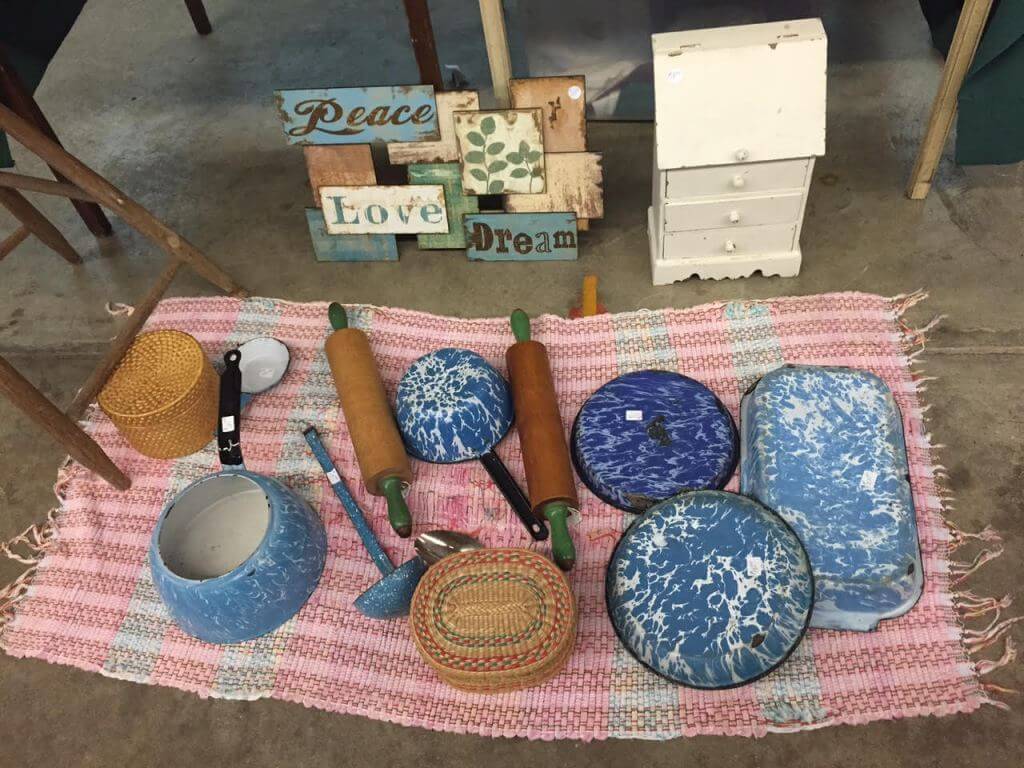
Cash in hand is hard to turn down.
I’m telling you this because as a buyer, knowing this increases your negotiation power significantly. One local vendor always asks me if I can pay in cash. When I do, he gives me an immediate 10% discount. The nice thing about antiques, is that in most cases the pricing of an item is usually not an exact science.
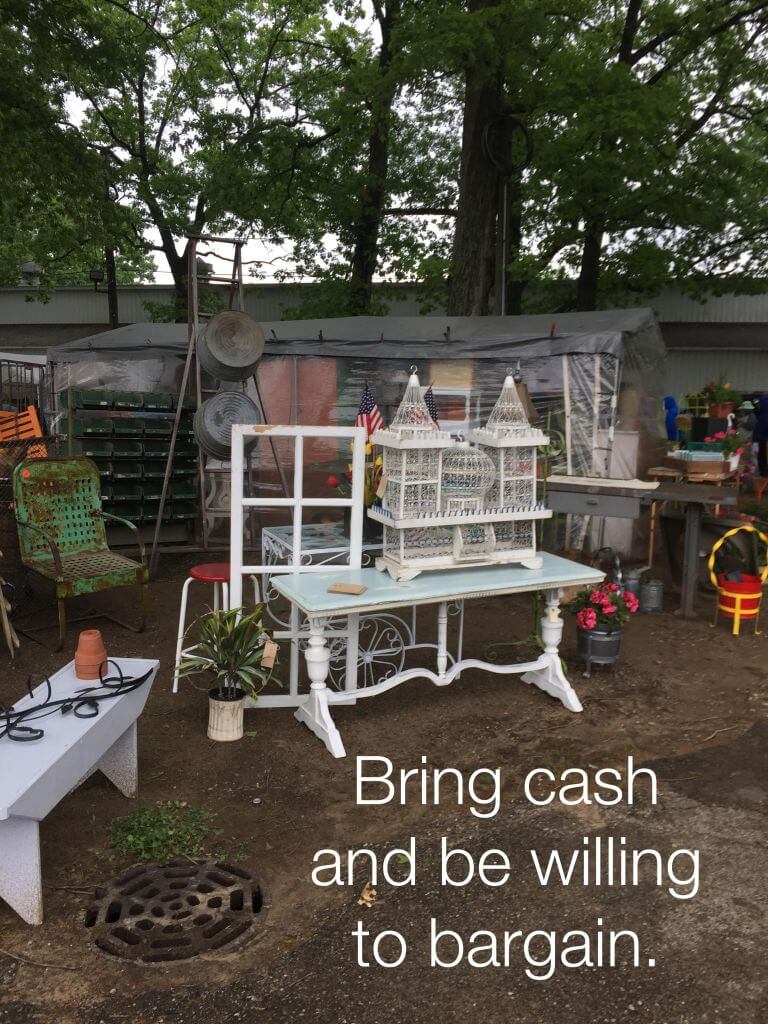
Tip: Set some guidelines for yourself or you’ll go crazy. My rule: only buy things that I either need or know I will immediately use.
This may seem silly, but I firmly believe in this principle. It’s so easy to get excited when antiquing: often I’ll encounter something my grandmother or mom used when I was a child. Sometimes I’ll see toys or memories from childhood. While those items are immediately moving, they’re not things (like an Easy Bake Oven or Barbie Dream House, for instance) that immediately fit into display at my adult-home.
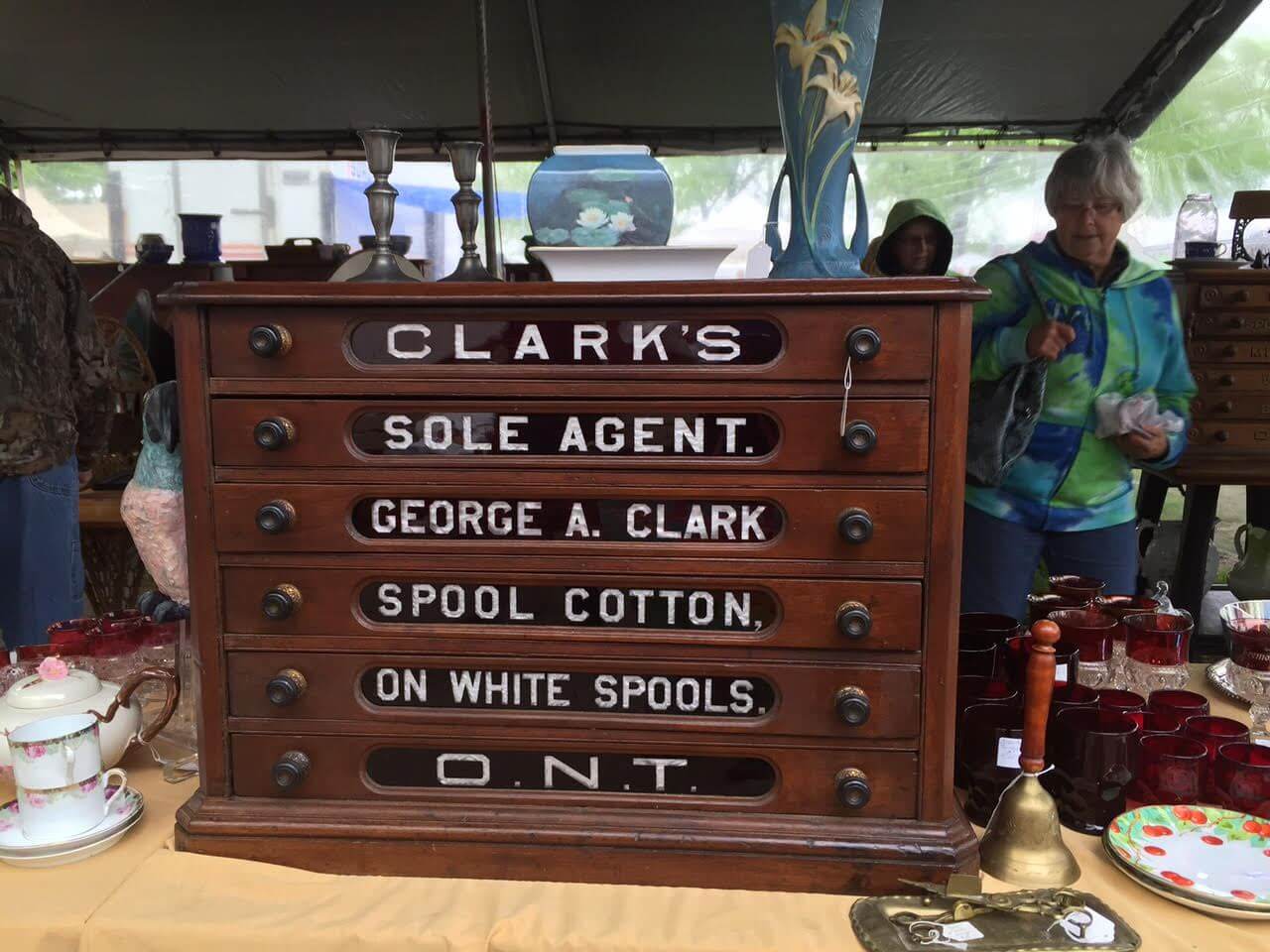
Tip: Plan ahead. What are you looking for?
Before embarking on an antiquing adventure take a little time to think about what you’d like to find. Rob’s old boss had an a-mazing coffee table. They were French, and had an old table that they had discovered at an old country flea market. Around their table sat milk maid stools they collected on the cheap at flea markets in the French countryside. They used the milk maid stools as additional seating at parties, and as a reminder of their love for their homeland.
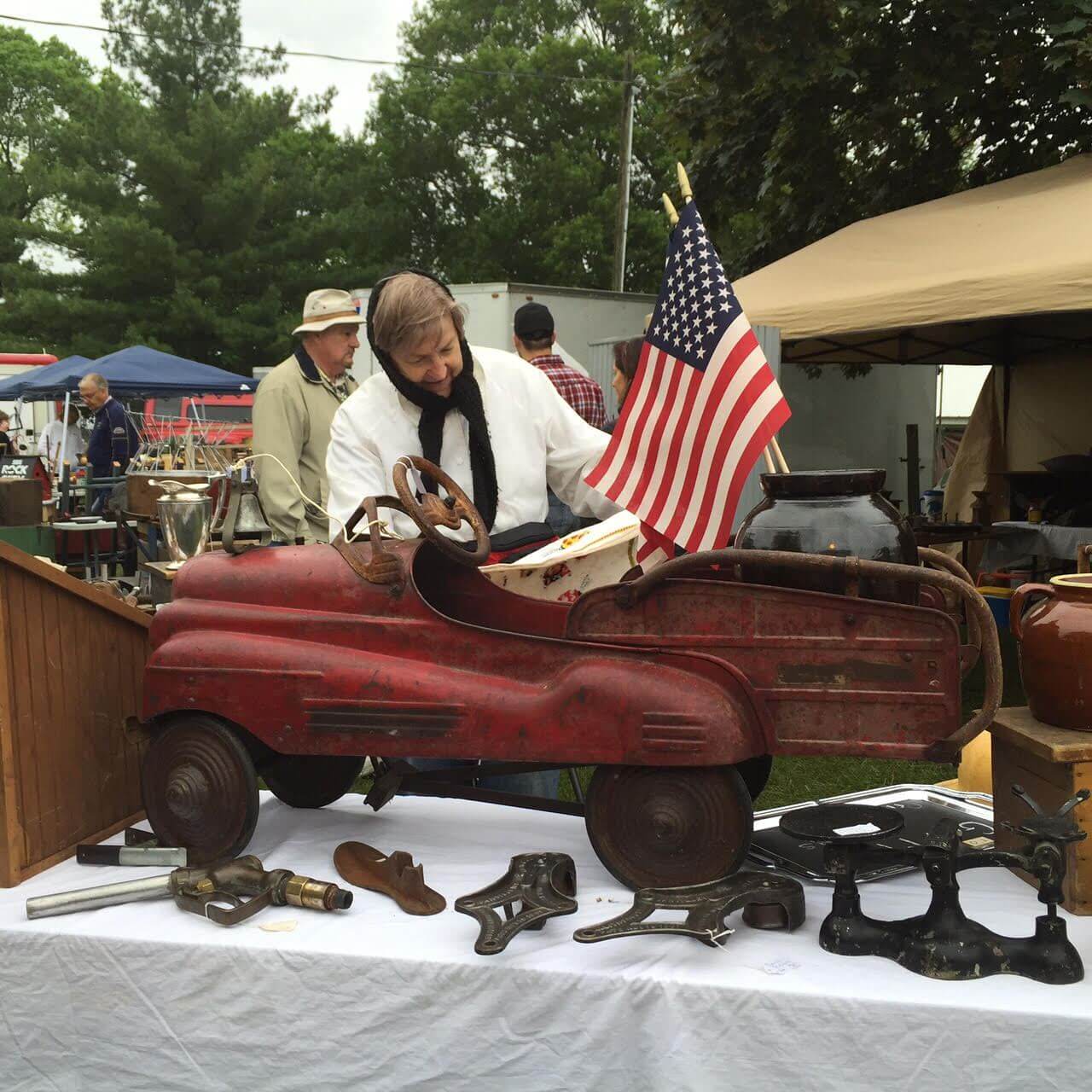
My key take-away? Buy something you’ll use, and when possible, something that moves you.
I love antiquing because it’s a fun shopping adventure which allows you to find well made items and create fun collections. Do you visit antique stores? Tell me in the comments below!

Leave a Reply